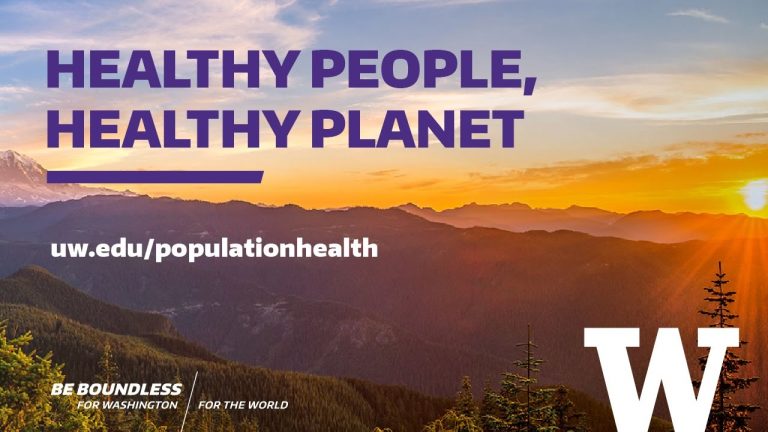Published on May 5, 2020

The University of Washington Population Health Initiative announced the award of approximately $350,000 in COVID-19 rapid response grants to 21 different faculty-led teams. These teams are composed of individuals representing 10 different schools and colleges. Funding was partially matched by additional school, college and departmental funds, bringing the total value of these awards to roughly $820,000.
“A challenge of this magnitude requires us to draw upon the breadth of the university’s expertise to respond, and the range of innovative, collaborative project ideas that were quickly developed for this funding call was both impressive and truly inspiring,” shared Ali H. Mokdad, the university’s chief strategy officer for population health and professor of health metrics sciences. “We believe the 21 projects selected for funding are all well positioned to rapidly accelerate our understanding of, or approach to mitigating, the impacts of this pandemic, which is touching every aspect of our lives.”
The Population Health Initiative COVID-19 rapid response research grants are intended to rapidly accelerate, or jumpstart, novel research designed to better understand or mitigate the impact of COVID-19 on multiple facets of life.
Urban-related projects include:
Assessing and Addressing Impact of COVID-19 Outbreak among Latino Immigrants in King County
- India Ornelas, Associate Professor, Department of Health Services
- Deepa Rao, Professor, Department of Global Health
- Jen Balkus, Assistant Professor, Department of Epidemiology
Assessment of Disparities in COVID-19 Testing and Outcomes in King County, WA: Implications for Cumulative Impacts in Low-Income, Minority, and Health Compromised Communities
- Stephanie Farquhar, Clinical Professor, Department of Health Services and Department of Environmental and Occupational Health Sciences
- Edmund Seto, Associate Professor, Department of Environmental and Occupational Health Sciences
- Esther Min, PhD student, Department of Environmental and Occupational Health Sciences
- BJ Cummings, Manager of Community Engagement, Interdisciplinary Center for Exposures, Diseases, Genomics and Environment (EDGE Center), Department of Environmental and Occupational Health Sciences
Examining the Impact of the COVID-19 Pandemic on Food Systems, Food Security, and Food Access in Washington State
- Adam Drewnowski, Professor, Department of Epidemiology
- Jennifer Otten, Associate Professor, Department of Environment and Occupational Health Sciences
- Sarah Collier, Assistant Professor, Department of Environment and Occupational Health Sciences
- Laura Lewis, Director, WSU Food Systems, Associate Professor, Community and Economic Development, Washington State University
- James Buszkiewicz, Doctoral Candidate, Department of Epidemiology
- Chelsea Rose, Research Coordinator, Department of Epidemiology
- Alan Ismach, Research Coordinator, Department of Health Services and Center for Public Health Nutrition
Design Determinants of COVID-19 Impacts to Essential Business and Service
- Jan Whittington, Associate Professor, Department of Urban Design and Planning
- Gundula Proksch, Associate Professor, Department of Architecture
Prevailing Impacts of COVID-19 on Rental Housing Markets Across Metropolitan Areas and Neighborhoods
- Rebecca J. Walter, Assistant Professor, Runstad Department of Real Estate
- Arthur Acolin, Assistant Professor, Runstad Department of Real Estate
- Kyle Crowder, Professor, Department of Sociology
- Christian Hess, Postdoctoral Fellow, Rutgers University-Camden, Center for Urban Research & Education
- Ian Kennedy, Graduate Student, Department of Sociology
Continue reading at Population Health.
Originally written for the Population Health Initiative.